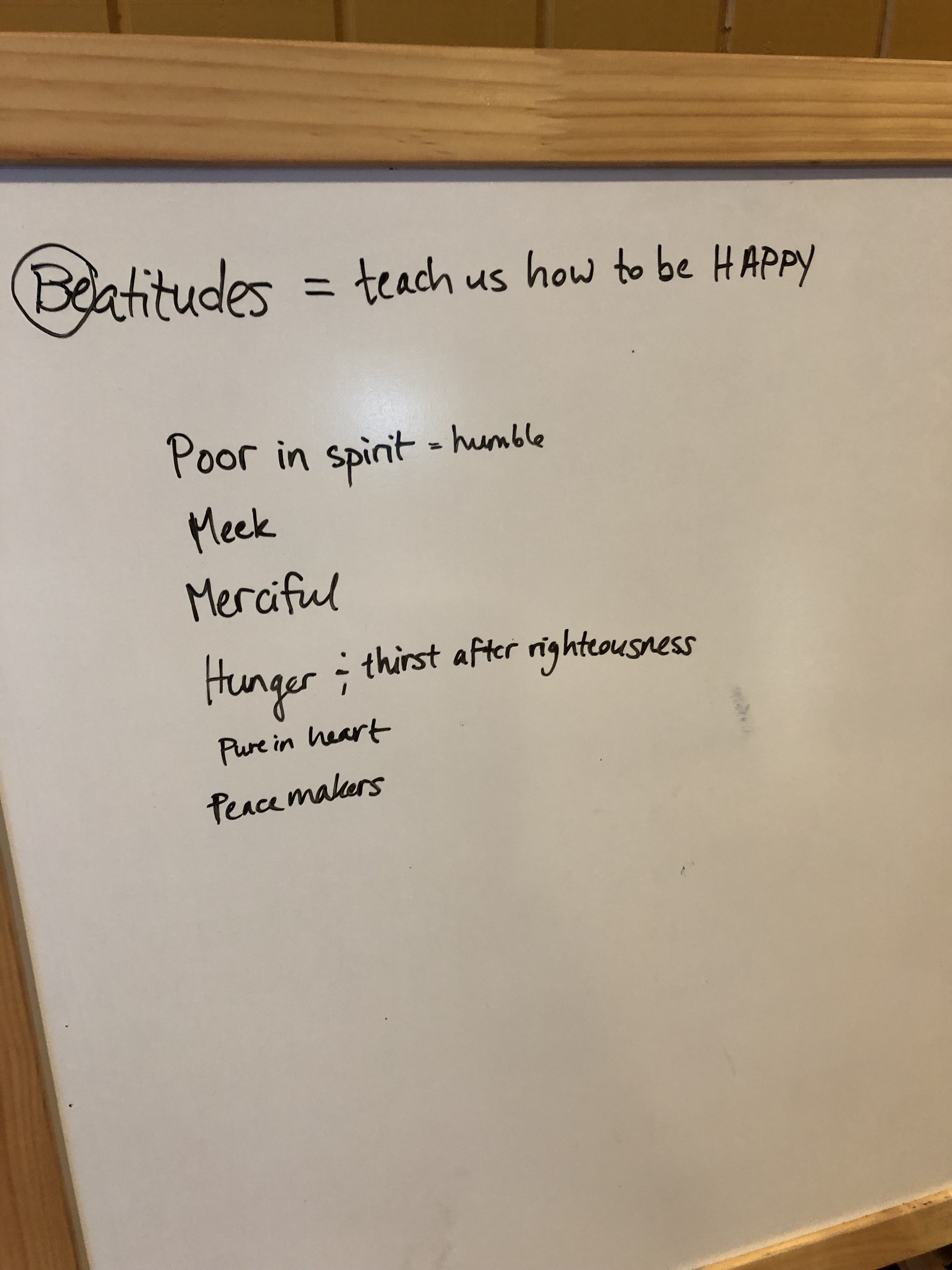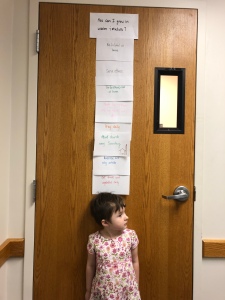Behold, I stand at the door and knock…. (Revelation 3:20, NT)
Letting Christ in has filled me with the Christmas spirit.
Years ago, maybe 25 or more, Christmas found me an angry, despondent child. I was crammed in the backseat of a minivan, the oldest of five kids at the time. After bursting out at one of my siblings, my dad pulled me out of the car to ask what was wrong with me. That moment I had a choice, did I really want to admit the truth?
You see, we were heading home after visiting one of my parent’s families, a fairly common occurrence. But this year the adults had sniped at each other more than usual. My grandmother felt more badgered than usual having bought us more presents than the other grandchildren since our family was larger and had less money. I felt anxiety, discord, and tension in the air. And for yet another year I had hidden my grimace as I opened gifts (I really dislike opening gifts in front of other people).
It doesn’t feel like Christmas, I sobbed to my parents. The magic was gone. And so began the next many years of my love/hate relationship with the season that everyone tells you is a time of excitement, happiness, and hope.
With The Church of Jesus Christ of Latter-day Saints’ introduction of the Light the World campaign a few years ago, Christmas began changing for me. I relished having something other than my unhappy history and dislike of commercialism to focus on. I threw myself into the daily service prompts. I had my own children by then and savored involving them in serving our family, neighbors, friends, strangers, and people we will never meet. I discovered that I could ask for no presents for Christmas, allowing me to instead center my attention on my kids and enjoy with them the magic they experience.
But this Christmas has been the best of all.
The Come, Follow Me home study program has worked miracles for me this year. It has brought me greater joy in motherhood by helping me teach the Gospel effectively in my home. Though it took a back seat for a couple of months as I struggled through recurring depression and anxiety, I renewed my commitment to daily scripture study just in time for the Christmas season.
Last week while studying Revelation I read the Savior’s well-known and oft-repeated statement, “Behold, I stand at the door and knock.” What do we do to let Christ into our lives? I asked my children. What should I be doing to let Christ into my life? I asked myself.
I began by recommitting myself to daily scripture study and finishing out the inaugural year of Come, Follow Me. I also started listening to old Brigham Young University devotional addresses about Christmas. A talk by President Boyd K. Packer from December 1962 really struck a chord with my efforts to open the door to Christ and invite Him in. President (then Elder) Packer said:
If you could just know that at your age you could find and can have that little kid feeling again about Christmas…you find that in exchange for Christmas past comes the most supernal of all gifts….
[I]f we can accept as adults a new childhood status with reference to our God, then we will begin to humble ourselves and begin to believe and so begin to see. And in exchange for the fanciful poetry of The Night Before Christmas, comes the miracle that grows in every season….
The whole account from Bethlehem to Calvary is the Christmas Story and it takes simple, childlike, almost naive faith to know it…. [I]t is the actual account of the opening of the eyes of the blind…. And it’s the story of the cleansing of the leper…. And then the walking on the water…. And there was the blind man in Bethsaida…. There was the blind and dumb demonic, there was Peter’s mother-in-law, the one with palsy and the one with the withered hand; there’s the lunatic child, the ten lepers, there was the miraculous draught of fishes, the multitudes fed, and many others raised from the dead.
[T]hat’s a mighty meager price to pay––giving up the fanciful poetry of The Night Before Christmas––for the factual account of the actual Christmas Story. And you need never fear in this life or the next to ever be disillusioned on what is really Christmas. (Packer, “Keeping Christmas,” Dec. 1962, speeches.byu.edu.)
As President Packer testifies, we can enjoy the magic of Christmas at any age and all our lives when we invite Christ in to sup with us and center our celebrations on the true Christmas Story. In addition to (haphazardly) following the Light the World service prompts this season, we finally opened my childhood advent book and celebrated all four days of advent. We even invited friends over for the fourth day. It was magical to read the scriptures and sing the sacred songs of Christ’s birth together.
To close with the words of President Packer:
I bear witness that the Lord Jesus Christ lives, I know that He really lives, that He was born a babe in Bethlehem, that He grew and fulfilled His ministry, that He was crucified on the cross and that He was resurrected; that He lives now, directing personally the operations of His church upon the Earth and manifesting Himself personally to His servants, that belief might be swallowed up in knowledge, that His work might go forth. (Packer, “Keeping Christmas,” Dec. 1962, speeches.byu.edu.)
















 We were eating dinner at the time which provided a natural object lesson in what it means to hunger and thirst after righteousness. We defined unfamiliar terms, discussing in turns what it means to be poor in spirit, meek, merciful, pure in heart, peacemakers. The kids were especially interested in the concept of mercy so we spent a little extra time on that topic.
We were eating dinner at the time which provided a natural object lesson in what it means to hunger and thirst after righteousness. We defined unfamiliar terms, discussing in turns what it means to be poor in spirit, meek, merciful, pure in heart, peacemakers. The kids were especially interested in the concept of mercy so we spent a little extra time on that topic.


